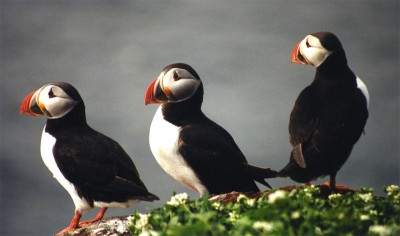Puffins are funny looking, but appearances aren’t everything. It turns out that the funny little birds are smart enough to “scout out” their own migration routes.
A new study suggests that the birds don’t rely on genetic “programming” or learning routes from their parents, which is what scientists used to think.
The proof comes from the research of a team from Oxford University and Microsoft Research Cambridge which utilized BAS geolocator tags to track the movement of 18 birds. Eight of the birds have been tracked for two back-to-back years.
The research report was published this week in PLoS ONE.
The study discovered that the birds charted a wide variety of different migration routes, but they were not random because the same bird followed a similar route each year. The fact that they follow a wide range of migration routes suggests that the movements were not genetically predetermined.

Since young puffins leave colonies at night by themselves, sooner than their parents do, the thought that they learn a route directly from others seems very unlikely.
“We think it’s likely that, before they start breeding, young puffins explore the resources the ocean has to offer and come up with their own individual, often radically different, migration routes,” said Professor Tim Guilford of Oxford University’s Department of Zoology, who co-led the study.
“This tendency to explore may enable them to develop a route which exploits all the best food sources in a particular area wherever these might happen to be,” he said
The scientists think that this kind of “scouting” for good travel routes might also be used by many other types of birds, particularly seabirds, who can choose to stop and eat anywhere on the ocean during their voyage.
The research report for this interesting avian development is available freely on PLoS ONE.






